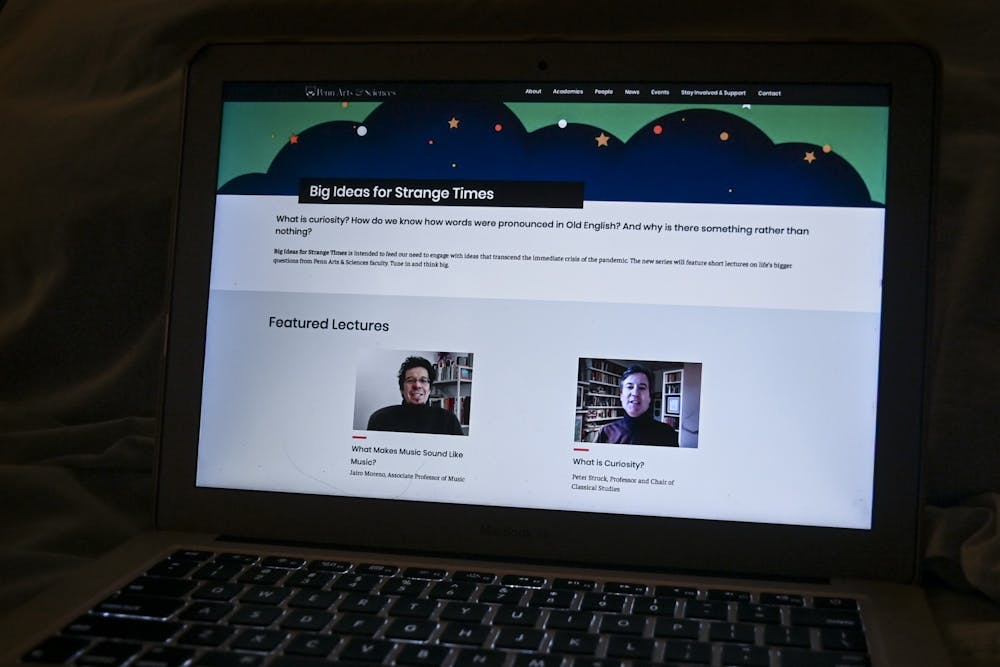A new video series hosted by the School of Arts and Sciences features short lectures from Penn professors on topics ranging from human curiosity to the solar system.
The Big Ideas for Strange Times series launched on May 15, and includes five-minute lectures on “ideas that transcend the immediate crisis of the pandemic.” One video lecture will be broadcasted each week throughout the summer.
Physics Department Chair Mark Trodden, who will deliver a brief lecture later this summer on the Big Bang, said he sees the lectures as a momentary break from the stress of the coronavirus pandemic.
He said he hopes it will stimulate interest about broader topics, especially as students may currently be focused on the more immediate issues facing the world.
The series aims to acquaint students with faculty and maintain a sense of connection, SAS Executive Director of Communications Loraine Terrell said. She said students will have the opportunity to suggest potential lecture topics.
Classical Studies Department Chair Peter Struck, who delivered the first lecture in the series, said the videos are an opportunity to “honor ideas for their own sake,” and to inspire innovation, curiosity, and creativity.
In his video, titled "What is Curiosity?," Struck discussed classical philosophers' differing understandings of human nature and curiosity. "To know partakes of the divine, but to want to know is definitively human," he said in his lecture.
Struck said his video was designed for students to feel as if they came out of a 30-minute lecture instead of a two-minute video.
RELATED:
LPS launches free online course to teach resilience and increase optimism during pandemic
Certificates don’t lie: Shakira graduates from online Penn philosophy course
Associate Music professor Jairo Moreno, who delivered the second lecture on "What Makes Music Sound Like Music,?" described the initiative as an accessible space for students to consider new ideas within a short time frame.
“It's long enough that you can get into some detail, but short enough that you don't have to get into tiny issues that may be more academic,” he said.
Although the series will not focus on topics related to the coronavirus, Moreno said he believes the pandemic brings greater urgency to the initiative.
“One of the things that has come up as a subtext, but perhaps a main idea throughout this crisis, is how alike we are after all, in some level or some fundamental way,” he said.
“Approaching these issues compels us to think outside of the fact that we are vulnerable as a species, but rather in what makes us so alive, like curiosity.”









